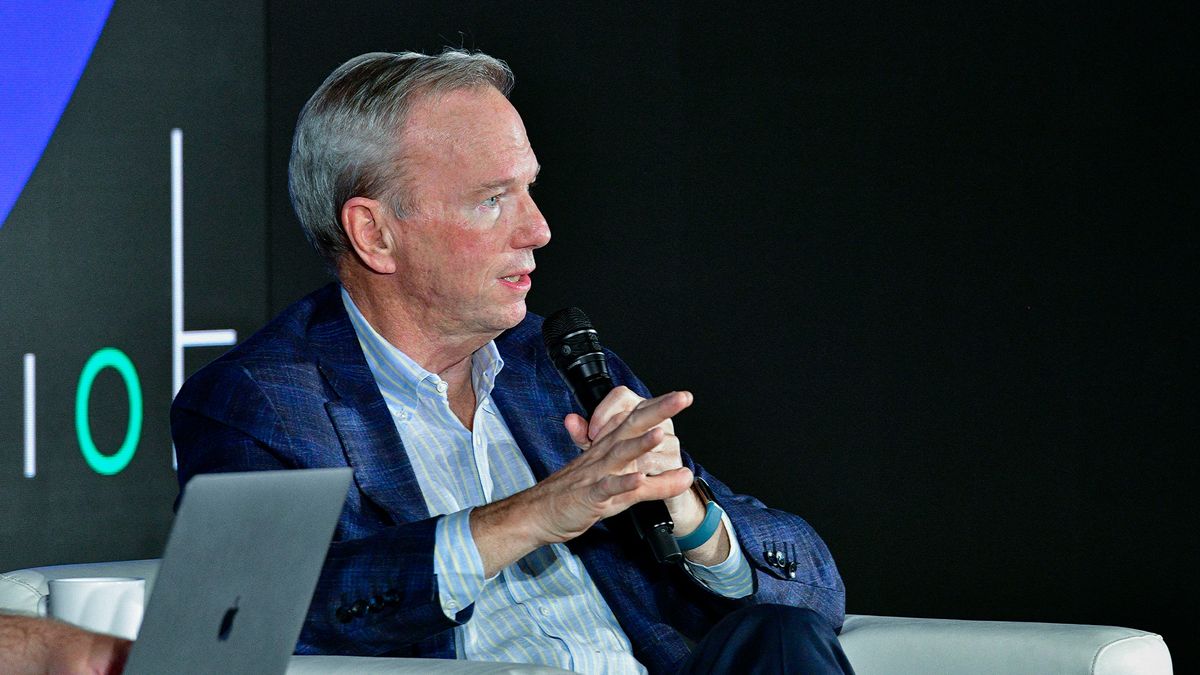Former Google CEO Eric Schmidt has backtracked on recent comments about Google’s remote working policies after sparking controversy online.
Speaking at Stanford University, the Google veteran was asked about the firm’s flagging fortunes compared to newer companies on the block, such as OpenAI and Anthropic.
During the talk, Schmidt criticized his previous employers’ work from home (WFH) policies, suggesting that they’re the reason for Google’s lax performance in the generative AI race.
“Google decided that work-life balance, and going home early, and working from home, was more important than winning,” Schmidt said.
Schmidt also compared Google’s “work-life balance” mindset to the opposing startup mindset, where employees “work like hell.” This, he claimed, is the reason why startups “work.”
The former Google CEO has since backtracked on the comments, according to reports from the Wall Street Journal, and the video has been taken down by Stanford University.
Notably, the WSJ reports that the video was taken down on Schmidt’s request.
“I misspoke about Google and their work hours,” he said. “I regret my error.”
What would’ve been a mundane interview with students quickly turned into a PR nightmare for Schmidt after his comments, with industry stakeholders criticizing his views on widely-employed working practices.
Elaborating further on his views on the topic of remote work, Schmidt questioned whether any aspiring business owners would employ a relaxed work from home policy if they were aiming to compete with rivals.
“I’m sorry to be so blunt, but the fact of the matter is, if you all leave the university and go found a company, you’re not going to let people work from home and only come in one day a week if you want to compete against the other startups,” he said.
He also drew attention to the disparity in work ethic that exists between the US and other countries, singling out the work ethic of students in Taiwan in a controversial comparison with US counterparts.
“I was in Taiwan, different country, different culture, and they said that – this is TSMC, who I’m very impressed with – and they have a rule that the starting PhDs … work in the factory on the basement floor,” Schmidt said.
“Can you imagine getting American physicists to do that? With PhDs? Highly unlikely,” he added.
WFH not the “sole factor” in productivity
Contrary to what Schmidt suggests, though, productivity at work can rarely be reduced simply to office attendance, at least according to Jasmine Eskenzi, founder and CEO of wellbeing and productivity app The Zensory.
“It cannot be stressed enough that productivity is entirely dependent on the individual, informed by a multitude of other reasons, not just the sole factor of whether you are in an office,” Eskenzi told ITPro.
Productivity differs based on the individual, and as such cannot be changed at the company-wide level through overarching or blanket office attendance measures.
“Viewing each member of staff as a unique individual with specific needs is a large part of having a productive work environment, not just whether or not someone is in the office,” she added.
Speaking from personal experience, Ed Johnson, CEO and Co-Founder of PushFar, added that he’d seen the productivity benefits from WFH in his own business.
“I certainly believe working from home can be as productive as working from an office. We operate as a remote working business and have seen hugely positive company growth, along with maintaining excellent team relationships,” he told ITPro.
“Ensuring productivity is maintained when employees are working from home is however crucial for business leaders,” he added.
Google’s remote work headaches
Schmidt’s comments come after years of WFH difficulties at Google which saw the firm butt heads with staff as it sought to implement stricter return-to-office (RTO) mandates in the post-pandemic period.
Google faced backlash from employees when it tried to enforce RTO measures in 2021, forcing the firm to alter its approach and allow for extended measures for many employees.
Hybrid working with three-days-a-week minimum office attendance has been the standard since 2022, though last year Google sparked controversy once again with plans to track attendance using badge data.
Other companies have had their own RTO sagas. Dell Technologies, for example, told remote workers that they could miss out on promotions unless they gave into the firm’s office attendance demands.
Staff pushed back at Dell as well, with almost 50% reportedly ignoring threats and choosing to remain fully remote.
A recent internal survey shed further light on the scale of discontent at the tech giant amidst the return-to-office spat, with employees noting that morale had dipped significantly.
link

